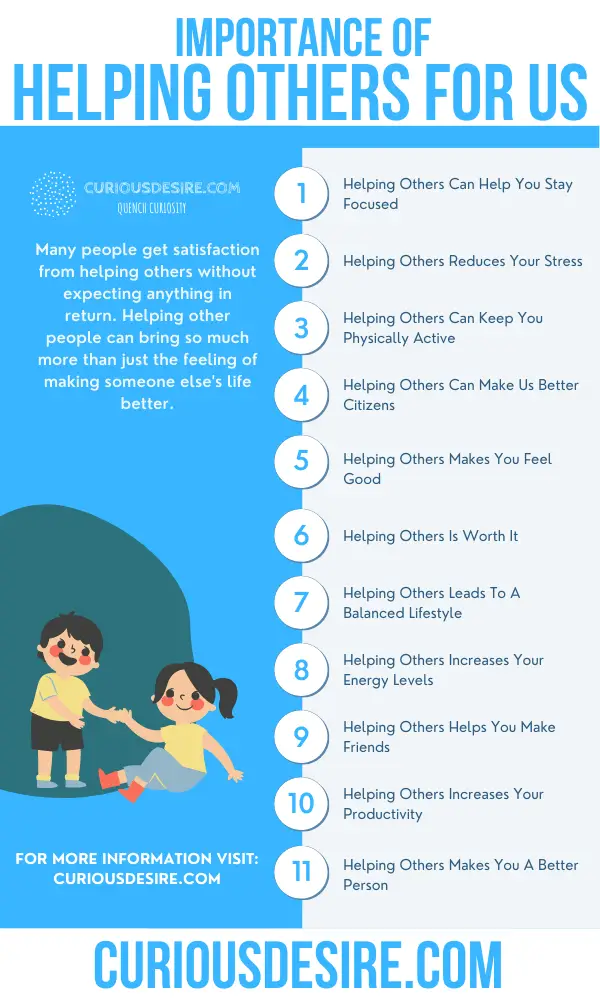In a world that often seems chaotic and self-centered, one of the most transformative acts we can engage in is helping others.
Beyond the immediate impact on those we assist, lending a hand has a remarkable effect on our own well-being and longevity.
Scientific research and anecdotal evidence consistently demonstrate that helping others brings us a sense of fulfillment and joy and contributes to physical and mental health, ultimately leading to a longer and happier life.

When we engage in acts of kindness, our bodies experience a release of hormones like oxytocin and endorphins, which have been linked to reduced inflammation, improved cardiovascular health, and enhanced immune function. These physiological changes, in turn, contribute to a reduced risk of chronic illnesses, such as heart disease and certain cancers, ultimately increasing our lifespan.
Helping others elicits a profound emotional response that can uplift our spirits and improve overall mental well-being.
When we extend a helping hand, we experience a sense of purpose and meaning in our lives. It boosts our self-esteem and self-worth, reinforcing a positive self-image.
Acts of kindness release endorphins, commonly known as “feel-good” hormones, which lead to an immediate mood elevation and reduce stress and anxiety levels.
Offering assistance to others strengthens our social connections, fostering a sense of belonging and building a support network. Whether volunteering for a local charity, supporting a friend in need, or simply lending a listening ear, acts of kindness promote social interactions and meaningful relationships.
This, in turn, reduces feelings of loneliness and isolation, which have been linked to numerous health issues, such as cardiovascular problems and cognitive decline.
Engaging in acts of kindness has positively impacted our physical health. Research indicates that individuals who regularly help others tend to have lower blood pressure, reduced risk of chronic diseases, and a strengthened immune system.
Helping triggers the release of oxytocin, often called the “bonding hormone,” associated with cardiovascular health and improved healing rates.
The benefits of helping others extend beyond immediate gratification and can have a long-lasting impact on our longevity. Studies have consistently shown a correlation between volunteering and increased life expectancy.
The act of giving back contributes to a sense of purpose and optimism, which plays a crucial role in healthy aging. Helping others keeps us engaged, mentally stimulated, and physically active, all of which contribute to better overall health and a longer, more fulfilling life.
Here are a few ways to help others:
- Volunteering at a local soup kitchen or food bank to help alleviate hunger in your community.
- Tutoring or mentoring a student to provide educational support and guidance.
- Participating in fundraising activities or charity events to support organizations addressing various social issues.
- Assisting elderly neighbors with grocery shopping, home maintenance, or simply spending quality time with them.
- Donating blood or registering as an organ donor to potentially save lives.
- Engaging in acts of kindness and empathy in everyday interactions, such as holding doors open, offering a helping hand, or listening attentively to someone in distress.
The simple act of helping others has a profound impact on our well-being and longevity.
Beyond the immediate joy and fulfillment it brings, helping others enhances our emotional well-being, strengthens social connections, boosts physical health, and promotes positive aging.


